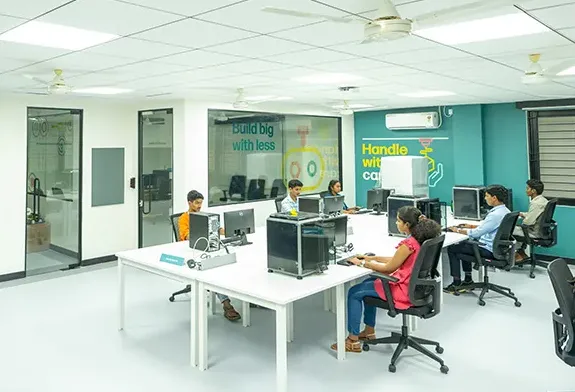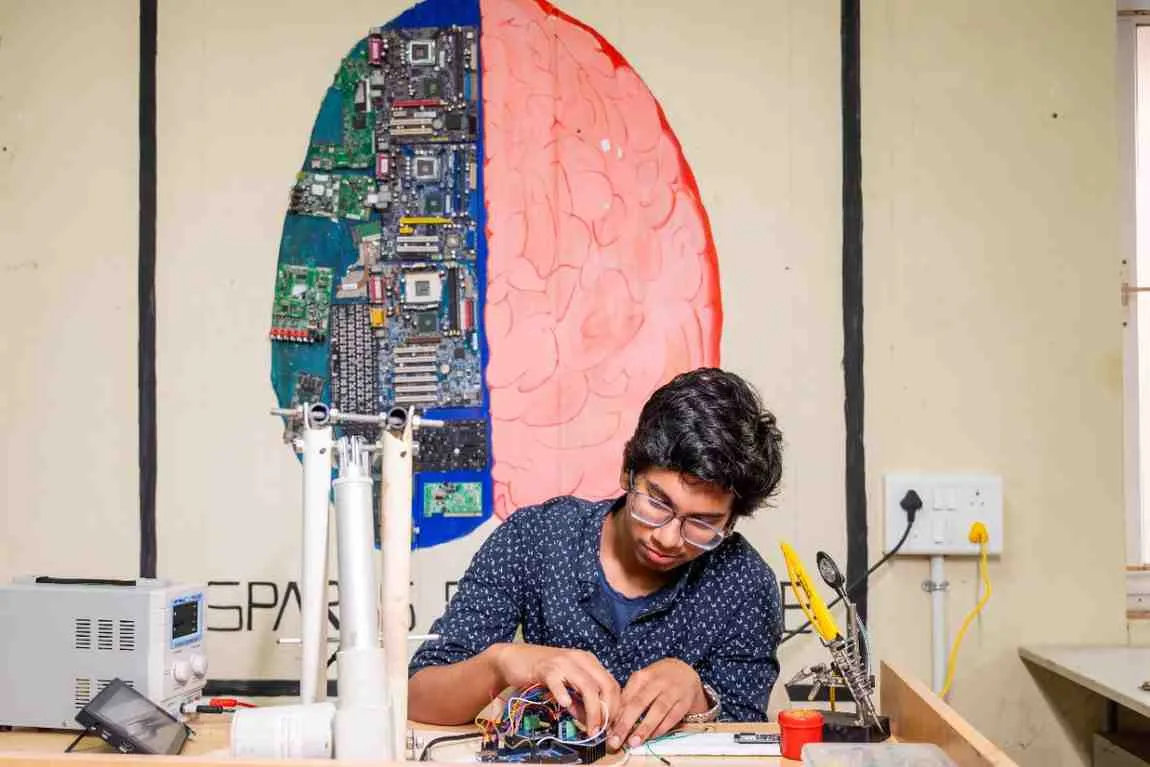Master of Technology in VLSI Design
Our MTech in VLSI Design is a two-year postgraduate programme structured across four semesters, designed to equip students with advanced technical skills and industry-relevant knowledge. The programme provides a strong foundation in integrated circuits (ICs), systems, and signal processing, while also focusing on cutting-edge developments in VLSI design. This comprehensive approach prepares students for research, innovation, and the ability to address contemporary challenges in the field.
In addition to technical expertise, the programme emphasises the development of essential soft skills such as communication, teamwork, and professional ethics. These skills, combined with a value-based education, ensure that graduates are well-rounded professionals, capable of navigating both technical and human aspects of the industry. The curriculum is tailored to meet the evolving demands of modern technology, empowering students to contribute to societal advancements through VLSI design innovations.

Eligibility
A minimum of 50% or 5.0 CGPA aggregate marks in B.E./B.Tech./AMIE in Electrical and Electronics Engineering / Electronics and Communication Engineering / Electronics and Instrumentation Engineering / Instrumentation Engineering or its equivalent from a recognized Central / State University or its equivalent and Qualified in GAT.
Scope of the Programme
Our MTech in VLSI Design is a two-year postgraduate programme, divided into four semesters, that aims to equip students with advanced technical skills and value-based education. The programme focuses on teaching fundamental principles and design skills in integrated circuits (ICs), systems, and signal processing, while also exposing students to the latest developments in VLSI design. This prepares them to pursue research and formulate solutions for contemporary societal issues in the field of electronics.
In addition to technical expertise, the programme also emphasises the development of soft skills, including communication, teamwork, and professional ethics. Graduates will gain hands-on experience in designing digital circuits, analysing circuit models, and using electronic design automation tools. With this holistic education, students are prepared for various roles in both the private and public sectors, including positions as design engineers, software engineers, and project leaders. The programme opens doors to numerous career opportunities, ensuring a bright future for postgraduates in VLSI design.
Key Highlights
Centre of Excellence & Infrastructure
- Centre for Autonomous Systems
- IC Design Lab
- Electronic Design Automation Lab
- FPGA Design Lab
- Harvard Style Classroom
Research Centre
- MURTI Multidisciplinary Research
Research
- High Impact Journal Publications: 416
- Research & Consultancy Projects: 10+
- Patents: 05
Industry & Academic Collaborations
- Intel
- Cadence
- Synopsys
- Coventry University
- Tohoku University
Venture Development Course
Offers a mandatory 02-credit venture development course, encouraging students to develop innovative products and services with real business potential.
Syllabus
Specialisation Bundles of Courses offered
- Electronic Design Automation
- VLSI System Design
- Analog, Mixed Signal & RF Circuit
Career Options
The Indian semiconductor industry, valued at $23.2 billion and projected to reach $80.3 billion by 2028, is growing at an impressive CAGR of 17.10%. This rapid expansion, driven by the increasing demand for semiconductors, opens a wide array of career opportunities for MTech graduates in VLSI Design. With India's robust education system and a population of over 1.4 billion, the country has the potential to become a major talent hub in the global semiconductor market, addressing the critical shortage of skilled professionals in the industry.
The government’s $10 billion investment through the India Semiconductor Mission (ISM), including incentives for manufacturing and support for fabless startups through the Design Linked Incentive (DLI) scheme, further boosts the sector. Graduates in VLSI Design are well-positioned to work in roles such as IC design engineers, system architects, and R&D specialists.
Opportunities span both private and public sectors, with leading semiconductor firms, startups, and government-backed initiatives offering roles in research, chip design, and product development for domestic and international markets. This surge in investment and support ensures a thriving landscape for VLSI Design postgraduates to build successful careers in India's burgeoning semiconductor industry.
Graduates from this programme can pursue careers in various sectors such as:
- Application Consultants
- Field Application Engineers
- Design Engineers
- Software Development
- Semiconductor Engineer
- VLSI Engineer
- Logic Library Expert
- Associate Application Engineer
Star Recruiters


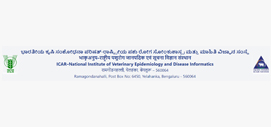
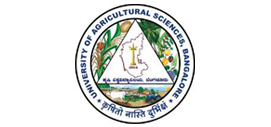
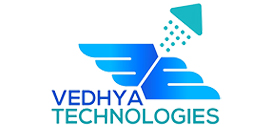
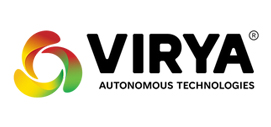
Notable Alumni
Infrastructure and Facilities
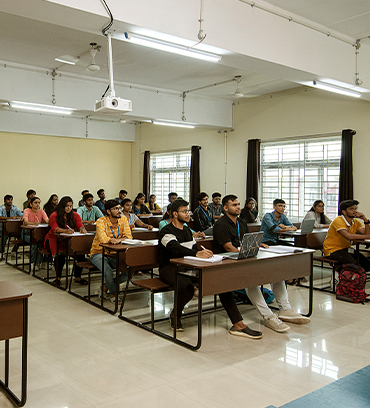
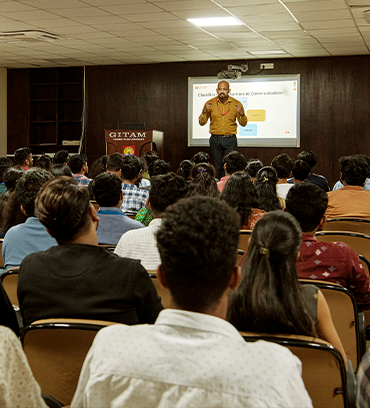

Fee Structure
M.Tech. VLSI Design
1st Year
₹1,21,800
2nd Year
₹1,27,800
Scholarships
Merit-Based Scholarships
The scholarship from GAT/National/State Entrance Tests applies only in the first year. To continue receiving it in subsequent years, a minimum CGPA of 8.0 must be maintained.
Apart from the above, the following scholarships are also offered to eligible students.
- Employee Children Scholarships: (60%, 40%, and 20%)
- Loyalty Scholarships: (10% for Any alumni returning to do higher studies/Children of Alumni/Real siblings (Not applicable to step siblings or cousins)/Children of retired employees of GITAM/Spouse of GITAM employees).
- Sports Scholarships: (100%, 75%, 50%, 25% and 15%)
Need-Based Scholarships
- To be eligible for the need-based scholarship, the combined income of both parents/guardians of the eligible student/If the student is married, the combined income of the family, i.e., the student's and spouse's income, must be less than 8.00 LPA.
- The candidates admitted through merit scholarship in the slabs of 75%, 60%, 40%, 25%,and 15%, and the parents/guardians combined income is less than the prescribed limits are eligible for the additional need-based scholarship.
| Scholarship % | Upgraded Scholarship % |
|---|---|
| 75% | 100% |
| 60% | 75% |
| 40% | 60% |
| 25% | 40% |
| 15% | 25% |
Scholarships For Accommodation
- In addition, students awarded need-based scholarships after merit scholarships will receive an additional 20% scholarship specifically allocated for hostel fees at GITAM for slabs: 15%, 25%, 40%, and 60%.
- Students awarded 75% & 100% scholarships are also awarded the same percentage in the hostel and food charges.
| Year | Scholarship % | GAT 2025 Score | GATE 2025 Respective Test Score * | AP / TS PGECET | CUET (PG) 2025 Marks |
|---|---|---|---|---|---|
| 2025-26 | 100 | 141 - 200 | 900 – 1000 | 1-10 | >=285 |
| 75 | 131 - 140 | 800 - 899 | 11 - 25 | 275 - 284 | |
| 60 | 121 - 130 | 700 - 799 | 26 - 100 | 250 - 274 | |
| 40 | 111 - 120 | 600 - 699 | 101- 200 | 225 - 249 | |
| 25 | 101 - 110 | 500 - 599 | 201 - 300 | 200 - 224 | |
| 15 | 86 - 100 | 400 - 499 | 301 - 500 | 180 - 199 |
Note: Terms & Conditions Applied
*To be eligible for the scholarship, candidates must qualify in GATE 2025








